Equine Assisted Psychotherapy involves structured interactions between humans and horses, primarily focusing on groundwork instead of riding.
Activities like grooming, leading, and communicating with horses are central to the process. These non-riding interactions help participants connect with the horses, fostering a deeper understanding of their own emotions, behaviors, and relationships. Individuals explore and process their emotions in a unique and impactful way, gaining insights that may not be as accessible through traditional therapy.
Horses are highly intuitive and sensitive to human emotions and body language. Their ability to reflect the feelings of those around them provides immediate and honest feedback, which can be grounding and insightful. This aspect of equine therapy allows participants to enhance self-awareness, regulate emotions, and build trust.
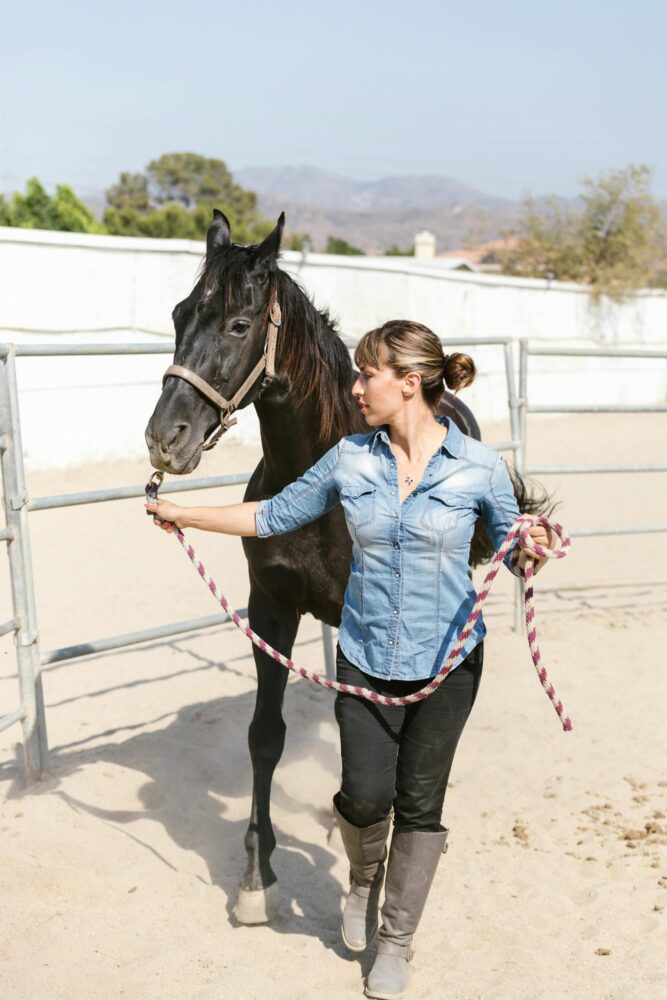
How Does Equine Therapy Work?
In equine therapy, offered by our program within a horse therapy retreat, a therapist guides the participant through various interactions with their horse helper. The horse’s reactions mirror the participant’s inner state, such as restlessness in response to anxiety, offering immediate, non-judgmental feedback. The therapist helps interpret these responses, guiding participants to understand and address their feelings, creating a supportive environment for self-awareness and growth.
Benefits of Equine Therapy
Equine therapy can help address a wide range of emotional and psychological issues, including:
- Trauma and PTSD: Horses provide a calming presence and are sensitive to emotional states, making them ideal partners for those dealing with trauma. Their non-verbal communication helps individuals process emotions without feeling pressured to verbalize painful experiences.
- Anxiety and Depression: The connection with horses can reduce anxiety and depressive symptoms. Horses respond to human emotions with sensitivity, allowing participants to feel seen and understood without words.
- Emotional Regulation: Working with horses helps individuals learn to regulate their emotions. Calming a horse or responding to its cues teaches valuable emotional management skills.
- Self-Confidence and Trust: Engaging with horses builds self-confidence and trust. Horses require clear communication and consistency, which encourages individuals to take responsibility for their actions and develop trust in themselves and others.
- Social Skills and Boundaries: Horses respond to both verbal and non-verbal cues, providing immediate feedback on how participants interact. This helps those struggling with social skills practice setting boundaries and building healthy relationships.
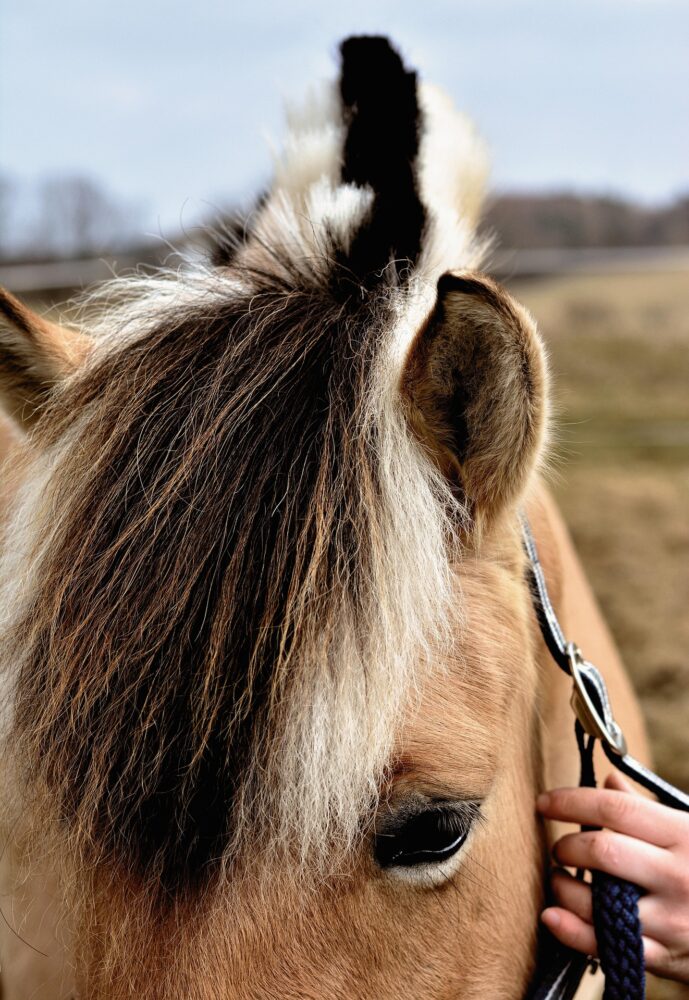
Equine-Assisted Learning (EAL)
Equine-assisted learning (EAL) focuses on developing life skills through interactions with horses. Unlike equine-assisted psychotherapy, which targets emotional healing, EAL emphasizes personal growth, social skills, and problem-solving abilities.
EAL sessions are structured to help participants improve communication, teamwork, leadership, and emotional awareness. By engaging in activities that require collaboration with the horse, participants gain insights into their behavior and learn new ways of interacting with others.
Why Horses?
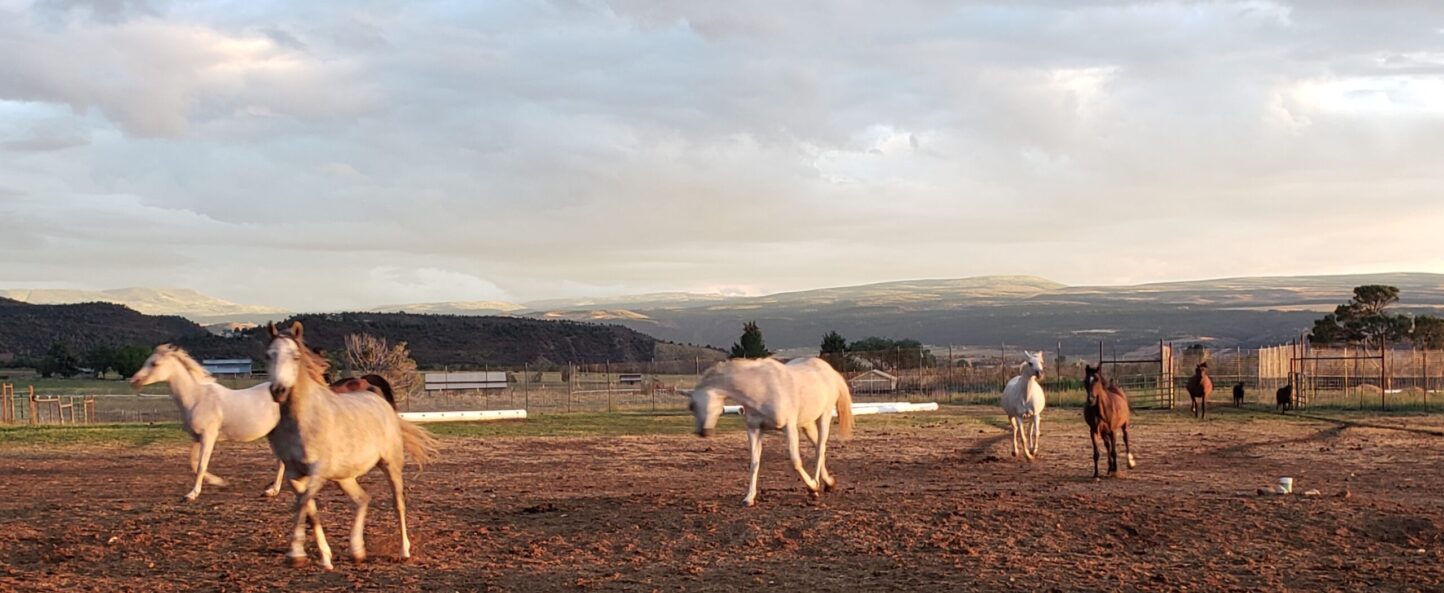
Horses are ideal partners in therapy because of their size, sensitivity, and intuitive nature. They are social and curious animals, which makes them naturally interested in human interaction. As animals that rely on heightened awareness for survival, they are highly perceptive and sensitive to their environment, making them naturally responsive to non-verbal cues and able to connect with human emotions and behaviors.
Horses do not judge or hold preconceived notions. They respond purely to the energy, body language, and emotions of the individual, creating a safe environment where participants can explore their feelings without fear of criticism.
A Complementary Approach to Traditional Therapy
Equine therapy programs are used alongside traditional therapeutic methods, providing a holistic approach to mental health. It is particularly effective for individuals who struggle to engage in talk therapy, as the experiential nature of equine therapy allows for emotional expression and healing in a more dynamic way.
Through working with horses, participants learn to build trust, communicate effectively, and confront emotions in a supportive setting. The horse's presence and responsiveness help individuals stay engaged, which is crucial for emotional healing and growth.
Horse Therapy Retreats and Learning at Gateways to Transformation
Equine sessions are a cornerstone of the programs at Gateways to Transformation, forming a vital part of the experience offered during a Horse Therapy Retreat. These residential retreats provide participants with the opportunity to step away from their daily routines and immerse themselves in a supportive environment designed for emotional healing and personal growth.
Our horse therapy retreat programs combine equine therapy sessions with other complementary activities, creating a holistic experience. Each program is tailored to meet individual needs, whether through a few horse therapy sessions or a more focused approach involving extensive work with horses. These sessions can be one-on-one or in a group and play an important role in participants' daily lives.
In addition to comfortable living areas, the Gateways facility features multiple areas for interacting with horses including a large barn, stables, training rings, obstacle courses, and 40 acres of pasture.
Programs are designed around various themes for example:
- Communication 101 - Enhancing Communication Skills
Through non-verbal feedback, horses help participants become more aware of their communication patterns. By mirroring behaviors, horses provide a unique way for individuals to enhance both verbal and non-verbal communication skills. - Heroic Journey and Heroine's Journey - Finding Purpose and Path
Horses help participants see and address their mental and emotional obstacles, guiding them as they work to discover their unique life path. These experiential interactions promote the development of essential life skills in a supportive environment. - From Victim to Victory - Healing Trauma and PTSD
The calming presence of horses aids in processing trauma and building trust. By mirroring participants' emotions and behaviors, horses facilitate the healing of deep emotional wounds. - Helpless to Health - Finding a Way to Health Through Disordered Eating
Horses help participants establish trust and build healthy boundaries, fostering self-empowerment. This supportive interaction aids individuals in breaking free from disordered eating habits. - Changing Leads - Healing Substance Abuse and Unhealthy Compulsions
Horses assist individuals in connecting with their emotions and understanding their inner struggles. This connection helps participants develop healthier coping mechanisms, supporting them in overcoming unhealthy patterns. - Failure to Launch - Overcoming Life Challenges
Horse assisted therapy helps participants address lack of motivation, unclear purpose, and difficulties with executive function by encouraging goal-setting, providing consistent feedback, and fostering accountability. These interactions help participants build resilience, improve focus, and develop essential life skills for greater independence.
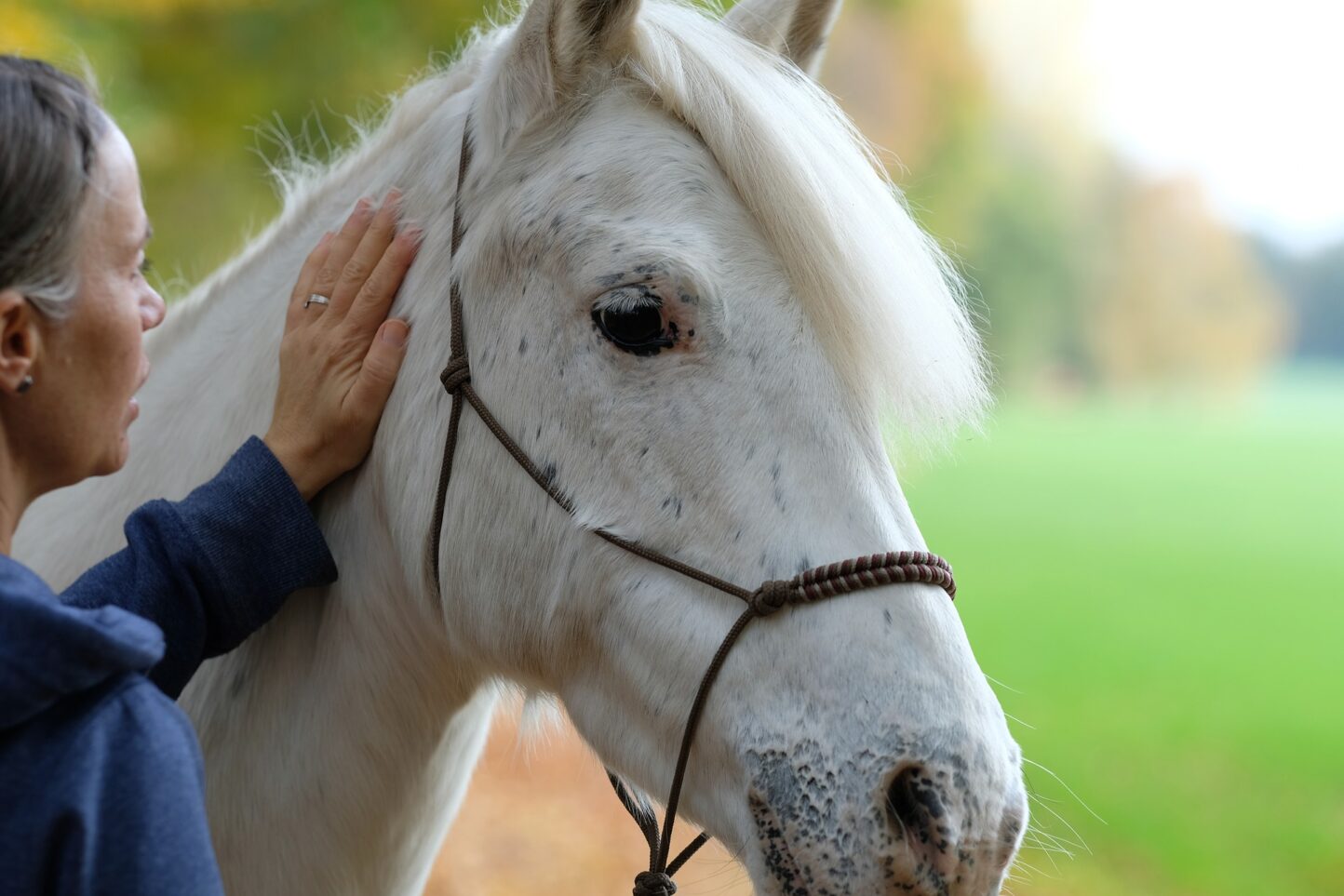
Going Farther: Equine Internship & Therapy Certification
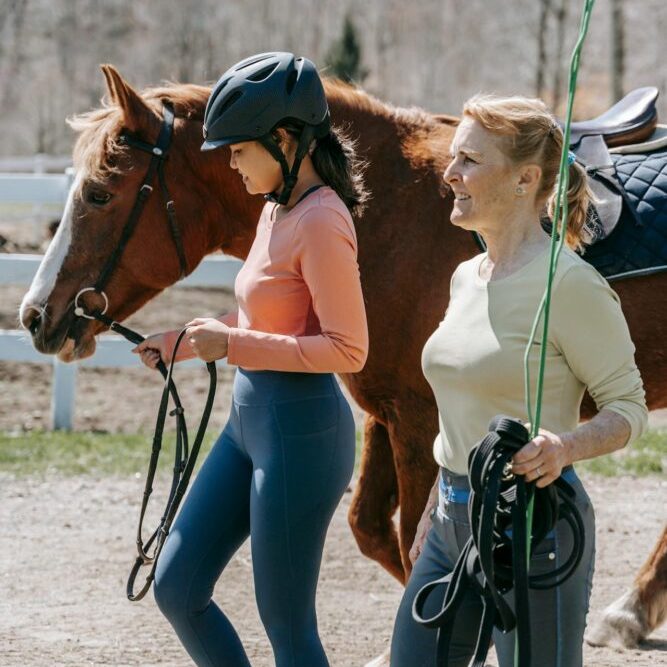
This program is ideal for individuals passionate about working with animals, those pursuing a career in equine therapy, or anyone looking to deepen their understanding of therapeutic practices involving horses. The equine internship program at Gateways to Transformation provides hands-on training in horse handling, training, and equine-assisted learning and psychotherapy.
Interns work daily with horses, gaining experience in grooming, feeding, riding, barn maintenance, and therapeutic techniques. The program offers practical skills ranging from basic horse care to advanced equine-assisted learning and psychotherapy practices.
Participants can expect a tailored experience based on their individual needs and goals. The internship can also be integrated with other programs offered at the retreat.
Final Reflections: The Power of Equine Therapy
Equine therapy is a powerful tool that leverages the unique bond between humans and horses to promote emotional healing, personal growth, and resilience. By working with these intuitive animals, individuals can gain a deeper understanding of themselves, improve emotional regulation, and build meaningful connections in a non-judgmental environment.
Whether used as a standalone therapy or alongside other approaches, equine therapy offers an effective way to address a wide range of emotional and psychological challenges. It highlights the profound connection between humans and animals and the potential for healing that this bond provides.

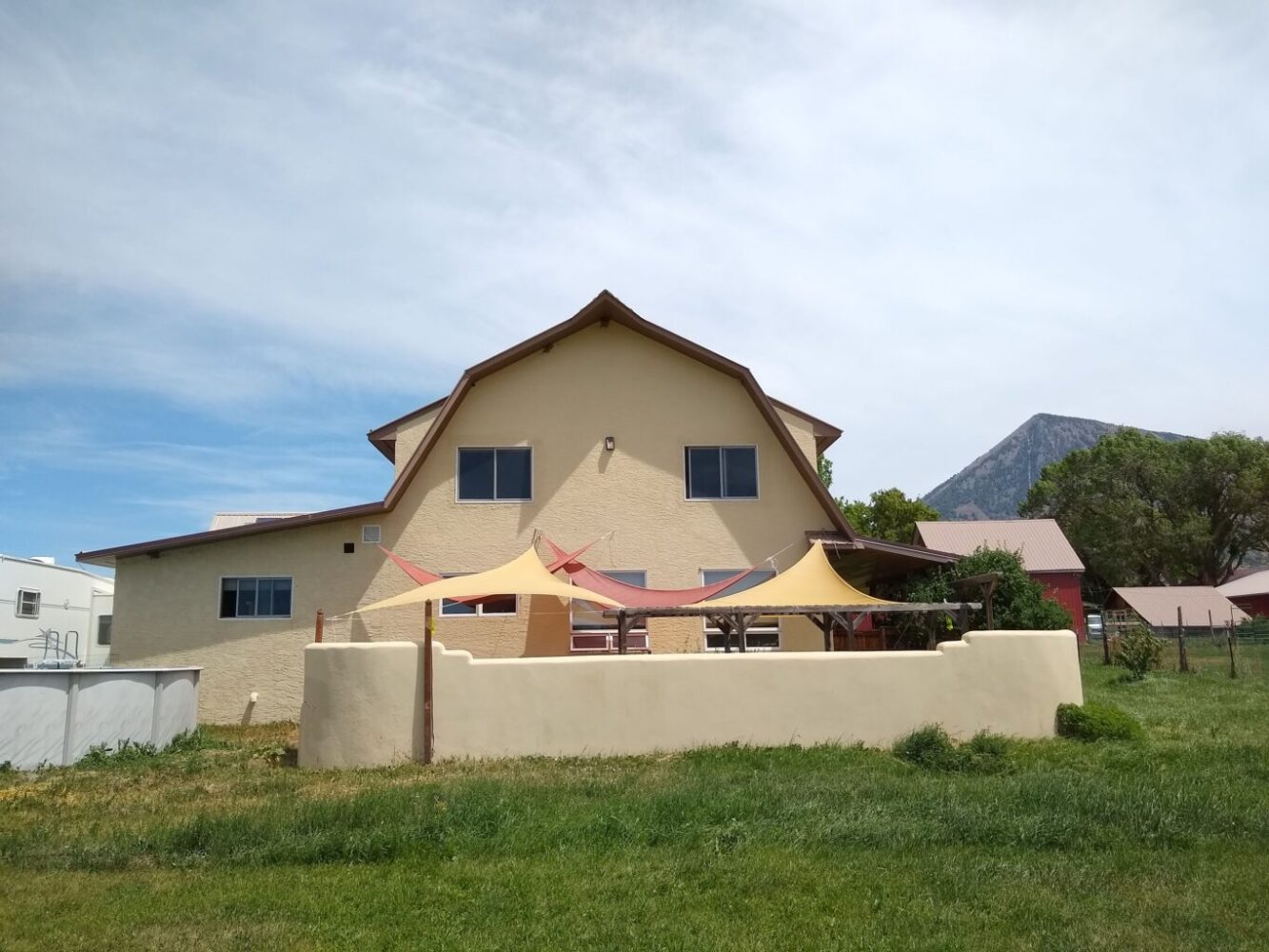
Our Residential Retreat and Treatment Center - A Space for Growth and Renewal
Located near the stunning West Elks range of the Rocky Mountains, Gateways to Transformation is a therapeutic farm offering a peaceful setting for personal growth. Our 40-acre horse therapy retreat center in Crawford, Colorado, provides private rooms, shared housing, and open camping, along with organic meals, workshops and events. Learn more about our therapy program options.
